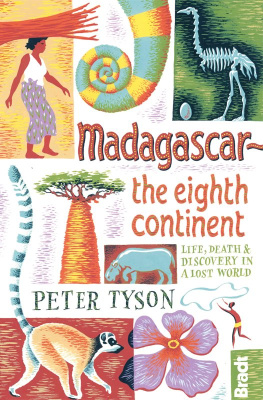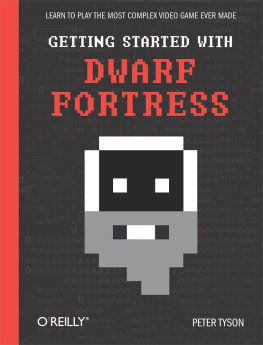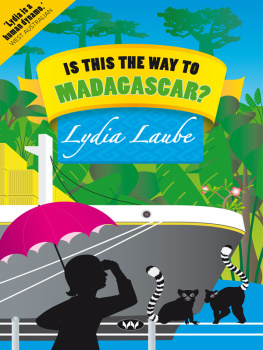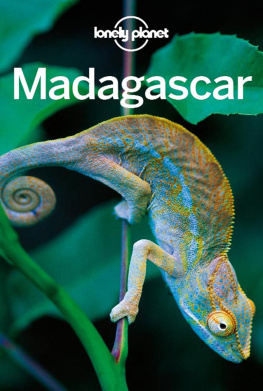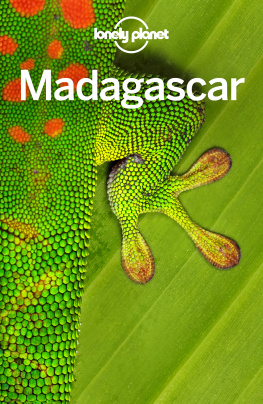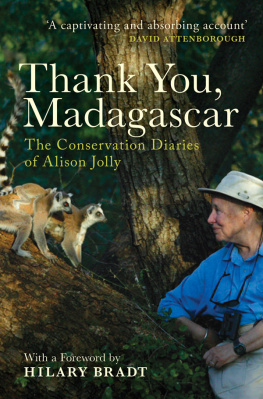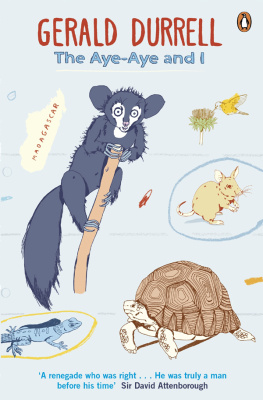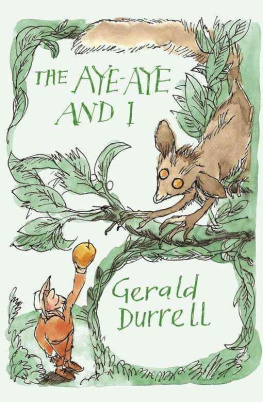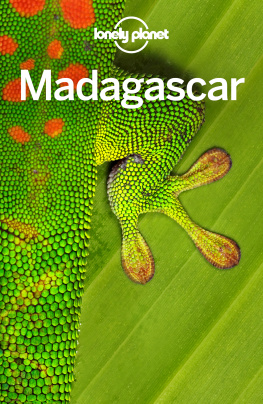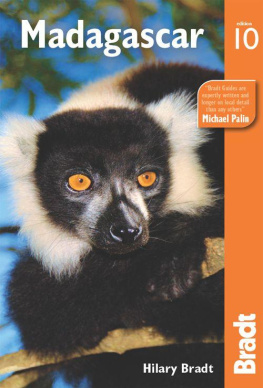Among the most significant changes as far as this book is concerned are the discovery of new species and the re-classification of those we already knew. Where appropriate or to avoid confusion, I have incorporated such changes into the text or added a footnote to clarify an apparent anomaly. But the vast majority of the book remains a contemporary record of the first-hand experiences I recorded in the 1990s.
Acknowledgments
F irst and foremost, Id like to thank the four scientists who generously invited me along on their field expeditions, attended to my every need and request, and reviewed their respective parts of the book for accuracy. Without the openness and conscientiousness of Chris Raxworthy, Dave Burney, Bob Dewar, and Pat Wright, this book would not be.
Other Madagascar researchers and experts who patiently put up with everything from lengthy interviews to nagging questions include Josephine Andrews, Richard Carroll, Garfield Dean, Lisa Gaylord, Sabrina Hardenbergh, Georges Heurtebise, Helen James, Susan Kus, Torie Lines, Ross MacPhee, Ron Nussbaum, Sheila OConnor, Michael ODea, Joe Peters, Alison Richard, Paul Siegel, Elwyn Simons, Eleanor Sterling, Bob Sussman, Linda Sussman, Norman Uphoff, and Anne Yoder. Im grateful to Russ Mittermeier for writing the foreword for the U.S. editions, and Id like to express special thanks to Alison Jolly, who graciously reviewed the manuscript and, over many years, has freely given of herself and her decades of experience on the island.
This book got its start in magazine articles. Id like to thank Barbara Wallraff at the Atlantic Monthly, Burkhard Bilger at The Sciences, and Mark Cherrington at Earthwatch for sensitive editing of articles on Madagascar, bits and pieces of which have wound up, in modified form, in this book.
Id like to express my deep gratitude for the many Malagasy who suffered through interviews, guided me through forests, answered questions, or otherwise helped me during my travels through their country. These include Thera Bruno Andriamaro, Ellis Fandrorota, Julien Mohamed Jules, Jean-Gervais Rafamantanantsoa, Emile Rajeriarison, Toussaint Rakotondrazafy, Leva Rakotovao, Jean-Baptiste Ramanamanjata, Jocelyn Ramanitrandrasana, Parson Ramiandrisoa, Ramilisonina, Roland Ranaivo-Ratsitohaina, Gabriel Randriambahoaka, Gervais Randrianasolo, Loret Rasabo, Achille Raselimanana, Darsot Lon Rasolofomampianina, Joelisoa Ratsirarson, Franoise Ravaoarimalala, and the ever-smiling twins Angelin and Angeluc Razafimanantsoa. A special thanks to M. and Mme. Andr Peyrieras of Maroantsetra, Madagascar, who kindly put me up for four nights in their home overlooking Nosy Mangabe.
For unusual source material, I will forever be indebted to James Sibree and the other missionary editors of the Antananarivo Annual and Madagascar Magazine, a scientific and literary journal published in the Malagasy capital between 1875 and 1900. I dug up ragged-edged copies of this obscure and fascinating periodical, not to mention a bevy of other venerable and rarely seen works on Madagascar, in the inspiringly cavernous recesses of Harvards Widener Library, which Id like to acknowledge for opening my eyes to a much wider range of material on the island in English than Id previously thought existed. Im obliged to Pierre Vrin for his thorough History of Civilization in North Madagascar, from which I drew liberally for Part Four.
I owe an enormous debt of gratitude to Monique Rodriguez of Cortez Travel (Solana Beach, California), who gave her unstinting support throughout my travels to Madagascar, and to her entire staff, particularly Christophe de Comarmond in Tana. Air Madagascar magnanimously provided transportation to and within the island on all four trips. At Earthwatch, Id like to thank Betty Parfenuk for helping to arrange my trips; Nini Bloch, Mark Cherrington, and Anne Marcotty for their friendship and support through several articles on Madagascar; and also Bear Burnes, David Lowe, and Blue Magruder. Thanks also to Lauren Aguirre at NOVA for granting me a short leave to finish the manuscript.
Theresa Park, my agent, called me one day in March 1996 and asked if Id ever considered writing a book on Madagascar. Youre holding the result of that phone conversation. Im immensely grateful for Theresas unbridled support during this project. My editor at William Morrow, Stephen Power, did a thoughtful edit of the manuscript, vastly improving the book and saving me from not a few embarrassing blunders. Id also like to thank editor Bret Witter for seeing the first edition of the book through to publication.
Thanks to my mother, Patricia Tyson Stroud, for taking time out from her own book to read a draft of mine, and for always being there. Hugs to my kids, Olivia and Nick, and my stepson Christopher, for uncomplainingly putting up with my long absences. And thanks also to their mother, Melissa Banta, for her enthusiasm, early readings and recommendations, and general support during this project.
Finally, Id like to thank Rachel Fielding, Adrian Phillips, Caroline Taggart, and everyone else at Bradt Travel Guides for reissuing this book in such a handsome edition, and Daniel Austin for his kind suggestion to do soand for loaning his vast expertise on Madagascar to catch and correct a number of errors in the text.
Preface
I f theres one incident in the four years during which I traveled to Madagascar that symbolizes why I wanted to write this book, it has to be the time I made a big mistake in Isalo National Park.

